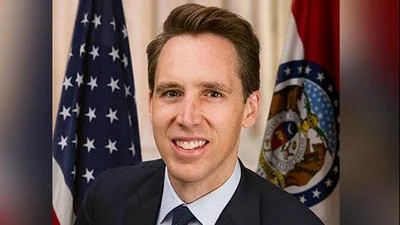Rep. Jason T. Smith, U.S. Representative for Missouri's 8th District | Official Website
Rep. Jason T. Smith, U.S. Representative for Missouri's 8th District | Official Website
WASHINGTON, D.C. – With the cost of chronic diseases overwhelming family budgets and federal health care spending, Americans need better tools to manage their health, according to witnesses testifying before a Ways and Means Health Subcommittee hearing. Nearly 90 percent of the $4.1 trillion spent on health care in America each year is attributable to chronic disease. Addressing obesity, a risk factor for several chronic diseases, could save taxpayers up to $500 billion annually and improve the nation’s physical and fiscal health. Witnesses pointed to the success of programs in various parts of Medicare – including innovative Medicare Advantage coverage options and value-based care delivery options – in improving patient health.
The Health Subcommittee hearing follows the Ways and Means Committee voting earlier this year to provide innovative medical treatments to help more Americans manage chronic disease. In June, the Ways and Means Committee advanced bipartisan legislation requiring Medicare to cover certain anti-obesity medications, multi-cancer early detection tests, innovative medical devices, and pilot a medically-tailored meal program. This week, the House of Representatives unanimously approved H.R. 3800, the Chronic Disease Flexible Coverage Act which passed out of the Ways and Means Committee as well and provides private health insurers with the flexibility to cover preventive medication and treatments.
A common focus of the hearing was how food could be better utilized as preventive medicine to address America’s chronic disease epidemic and its associated cost to individuals, families, and taxpayers. Witnesses discussed the importance of preventive medicine in addressing chronic diseases versus the prevailing approach of simply managing them after Americans have already become ill. As one witness told Health Subcommittee Chairman Vern Buchanan (FL-16), the status quo approach is similar to “mop[ping] up the floor while the sink overflows.”
Rep. Buchanan: “Dr. Hyman…we’re spending over a trillion dollars. We’re spending more money than we’ve ever spent, but we’re going in the wrong direction in terms of health care. When you look at 42 percent…obesity of adults, 20 percent with children. That’s wrong. That’s sad. We can do a lot better. What are your thoughts on it?”
Dr. Mark Hyman: “The science and data are clear that we can solve this chronic disease epidemic by focusing on its root causes...In America, we mop up the floor while the sink overflows...I think there are a lot of levers that government can pull…I think a deep understanding of food as medicine is very important.”
Medicare Advantage has various programs specifically designed to prevent and treat chronic diseases. Recent data shows that nearly four million seniors are enrolled in plans that offer food and produce benefits. Additionally, Medicare Advantage Special Needs Plans (SNPs) offer specialized care for individuals with severe or debilitating chronic disease (C-SNPs). One study found that C-SNP enrollees with diabetes were 38 percent less likely to be admitted to a hospital and 22 percent more likely to have a primary care visit.
Rep. Smith: “Dr. Rinaldo, based on your experience with Medicare Advantage, how would you say plan design can better incentivize patients to build stronger relationships with their primary care providers?”
Dr. Francesca Rinaldo: “In our benefit design...we often eliminate or reduce costs for preventive care services like primary care visits...For example...we provide services...that include no-cost insulin...no-cost diabetic self-management training...for our cardiovascular disease members...we provide $0 cardiologist visits as well as low-cost cardiac rehabilitation…”
Obesity is a risk factor for several chronic diseases including cancer, diabetes, and heart disease. Republicans on the Joint Economic Committee recently issued a report calculating that obesity will cost an additional $9.1 trillion over ten years.
Rep Schweikert: “We did the math on obesity in America…over next 10 years…$9 trillion additional health care costs…Milken Institute says 47 percent U.S....tied obesity…”
Expanding coverage for innovative testing like multi-cancer early detection screenings allows patients earlier treatment opportunities.
Rep Fitzpatrick: “…prevention services – specifically for cancer…advanced legislation increase Medicare access multi-cancer early detection screenings…what other investments should be made…”
Former Senator Bill Frist: “…Once you get test…how do we act?...huge gap between positive result or negative result what happens?...opportunity telemedicine patient navigation.”




 Alerts Sign-up
Alerts Sign-up